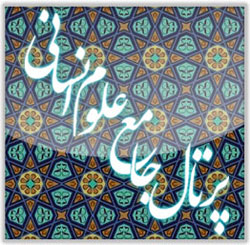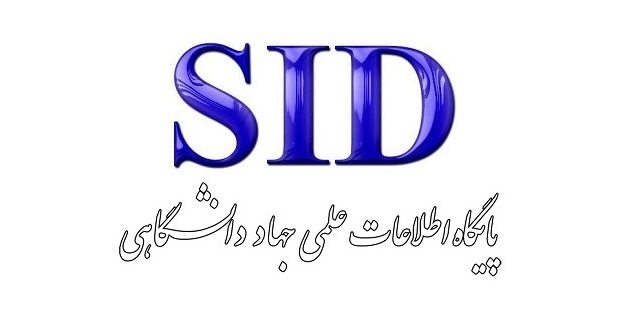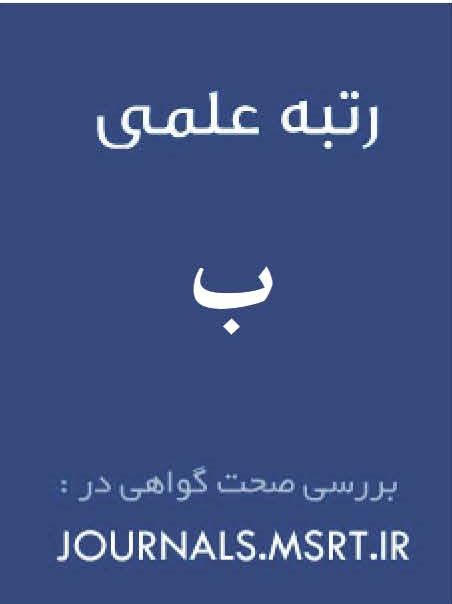Content Analysis of The Little Black Fish by Samad Behrangi Based on Jungian Psychological Discourse
Keywords:
Little Black Fish, Samad Behrangi, Jungian psychology, JungAbstract
In this study, the psychological analysis of the character The Little Black Fish is conducted based on Jung’s theory of individuation. The Little Black Fish, as the most well-known literary work for adolescents, reflects the experiences and behaviors of a generation—a generation that sacrificed its life for its ideals. The structure of the story, like ancient myths, is founded upon the motif of a journey. The Little Black Fish does not accept the status quo and begins a journey from the stream toward the sea. This work can also be regarded as the author’s conclusion. He considers the way to overcome the adverse conditions described in his other tales to be through gaining awareness of the root causes of such circumstances and taking action to change them. The sense of individuation in The Little Black Fish is not imposed but voluntary. In fact, what drives The Little Black Fish into solitude and entry into the cycle of consciousness is not rejection by society but the inability to tolerate the pond and its inhabitants. The research method applied is content analysis. Sources were collected through reference to books, reputable scientific journals, periodicals, and internet searches. In the examination of education, and by synthesizing the research findings, it can be concluded that the reflection of educational themes in this story is mostly influenced by leftist discourse as well as prevalent national and religious discourses, and stands in opposition to the discourse of domination (the discourse of despotism).
Downloads
References
1. Babaali M. Analysis and Critique of Citizenship Culture Elements in Stories and Tales of Persian Reading Textbooks for Elementary School. Scientific Research Journal of Children's Literature Studies. 2018;9(1).
2. Masbooq SM, Golzar Khoshesteh A. Comparative Analysis of Dialogue in "The Little Black Fish" and "Al-Hadīqah al-Ajmal" Stories with Emphasis on Religious Teachings. Arabic Literature. 2018;10(1):19-35.
3. Moghadam A, Karimi MH, Sahra Gerd R, Shahsani S. Critical Discourse Analysis of Samad Behrangi's "The Little Black Fish". Scientific Quarterly of Persian Language and Literature. 2019(54).
4. Shokati S, editor Narrative Analysis of "The Little Black Fish" Based on Gérard Genette's Narrative Theory. Second International Conference on Research in Behavioral and Social Sciences; 2015.
5. Norouzi A, Jamali A, Nejati-Jozeh M. A Different Meaning of the Color Black in "The Little Black Fish". Semi-Annual Journal of Children's Literature Studies. 2019;10(2).
6. Mozaffari S, Ashouri R, Mohammadian M, editors. Analysis of Character Types in Samad Behrangi's "The Little Black Fish". Sixth National Conference on Modern Studies and Research in Humanities, Management, and Entrepreneurship in Iran; 2018.
7. Va'ez B, editor Analysis of "The Little Black Fish" Based on Existential Philosophy. Sixth National Literary Text Research Conference: A Fresh Look at Contemporary Fiction; 2018.
8. Barkhordari R, Madani SH. Qualitative Content Analysis of Samad Behrangi's Stories to Explore the Possibility of Extracting Educational-Critical Themes. Family and Research Quarterly. 2016;13(1):93-116.
9. Akbaryani MH. Contemporary Iranian Literature Oral History Collection. Tehran: Roznegar; 2004.
10. Dehghan A, Amiri V. Analysis of Narrative Elements in "24 Hours Sleep and Wakefulness" by Samad Behrangi. Allegorical Research Quarterly in Persian Language and Literature. 2015(23):106-79.
11. Samaei A. Roots and Enduring Thoughts - Samad Behrangi's Stories. Tehran: Honar Parineh; 2010.
12. Valipour A, Hemmati R. In Search of an Ideal Perfection; Comparative Analysis of Samad Behrangi's "The Little Black Fish" and Richard Bach's "Jonathan Livingston Seagull". Scientific Research Journal of Children's Literature Studies. 2017(16):158-41.
13. Asadi A, editor Analysis of Archetypal Concepts in Jungian Analytical Psychology from the Perspective of the Quran, Nahj al-Balagha, and the Teachings of Islamic Religious Leaders. Third International Conference on Recent Innovations in Psychology, Counseling, and Behavioral Sciences; 2016.
14. Ordobadi A. Analytical Psychology School of Carl Gustav Jung. Tehran: Pahlavi University; 1975.
15. Jung CG. Memories, Dreams, Reflections. Mashhad: Behnashr; 2008.
16. Schultz DP, Sidney Ellen S. A History of Modern Psychology. Tehran: Doran Publishing; 1999.
17. Ahmadi F, Nikvarz Y. Examining Jung's Individuation Process in the Story "The Little Black Fish" by Samad Behrangi. 2011.
18. Qajari HA, Nazari J. Application of Discourse Analysis in Social Research. Tehran: Sociologists Publishing; 2013.
19. Saei A. Research Methodology in Social Sciences; Critical Rationality Approach. Tehran: SAMT; 2008.
20. Dadvar A, Mansouri E. Introduction to Myths and Symbols of Iran and India in Ancient Times. Tehran: Alzahra University and Kalehor; 2011.
21. Franz M-Lv. The Individuation Process in Fairy Tales. Tehran: Sherkat Sahami Enteshar; 2004.
Downloads
Published
Submitted
Revised
Accepted
Issue
Section
License
Copyright (c) 2025 Zahra Iranmanesh; Masoud Darijani (Author)

This work is licensed under a Creative Commons Attribution-NonCommercial 4.0 International License.








